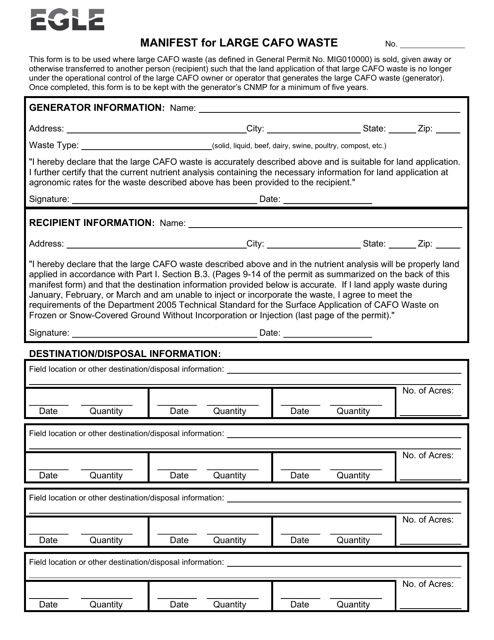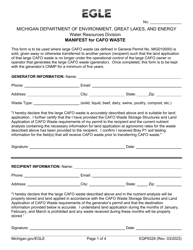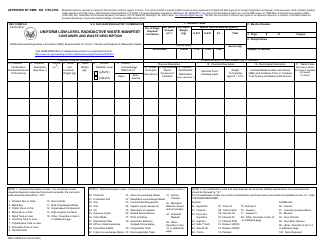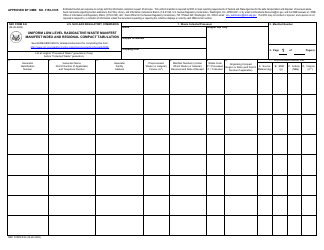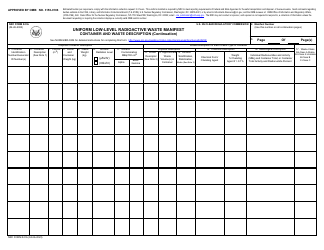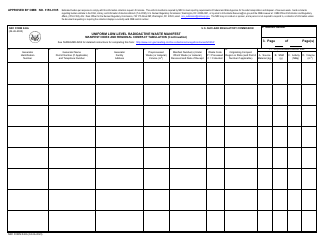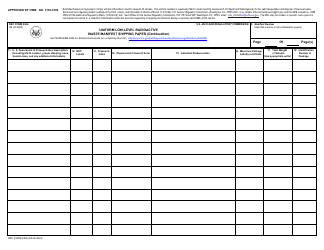Manifest for Large Cafo Waste - Michigan
Manifest for Large Cafo Waste is a legal document that was released by the Michigan Department of Environment, Great Lakes, and Energy - a government authority operating within Michigan.
FAQ
Q: What is a Large CAFO?
A: A Large CAFO stands for Concentrated Animal Feeding Operation and refers to a facility that raises a large number of animals in confinement.
Q: What type of animals are typically raised in Large CAFOs?
A: Large CAFOs typically raise animals such as cows, pigs, chickens, and turkeys.
Q: What is CAFO waste?
A: CAFO waste refers to the animal manure, urine, and other byproducts that are generated in Concentrated Animal Feeding Operations.
Q: Why is CAFO waste a concern?
A: CAFO waste can contain pollutants such as nitrogen, phosphorus, pathogens, and antibiotics, which can potentially contaminate air and water sources and pose health risks.
Q: How is CAFO waste managed in Michigan?
A: CAFO waste in Michigan is regulated under the state's Large CAFO Program, which includes requirements for waste storage, handling, and nutrient management plans.
Q: What are some environmental impacts of CAFO waste?
A: Some environmental impacts of CAFO waste include nutrient runoff into water bodies, contamination of groundwater, and air pollution from odorous emissions.
Q: What is the role of the Michigan Department of Environment, Great Lakes, and Energy (EGLE) in regulating CAFO waste?
A: EGLE is responsible for implementing and enforcing regulations related to CAFO waste management in Michigan.
Q: What can residents do if they have concerns about CAFO waste in their area?
A: Residents can contact their local health department or the Michigan Department of Environment, Great Lakes, and Energy for assistance and to report any concerns regarding CAFO waste.
Form Details:
- The latest edition currently provided by the Michigan Department of Environment, Great Lakes, and Energy;
- Ready to use and print;
- Easy to customize;
- Compatible with most PDF-viewing applications;
- Fill out the form in our online filing application.
Download a printable version of the form by clicking the link below or browse more documents and templates provided by the Michigan Department of Environment, Great Lakes, and Energy.
